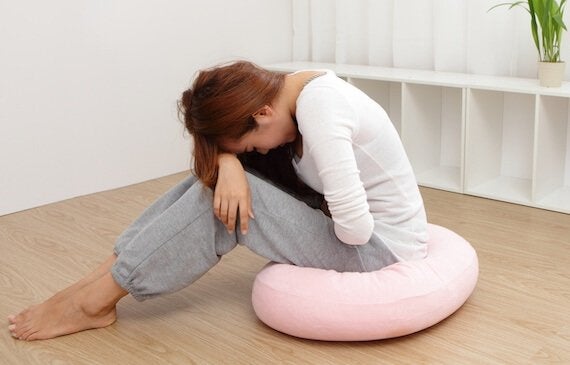Premenstrual syndrome is the storm before the storm, in many cases the weeks before menstruation cause a number of very annoying physical and psychological symptoms, in addition it is known that 20% of women see their lives very limited today, hence the need for accurate diagnosis and a multidisciplinary approach to improve the daily life of patients.
Whenever we talk about PMS, it is very common to pay attention to one aspect: women’s mood swings often look at the superficial without paying attention to the complex mechanisms that are part of the menstrual cycle. fluctuate from week to week, do Serotonin levels drop and other hormones can promote water retention, abdominal pain, headaches?
- PREmenstrual syndrome is characterized by a series of physical and psychological symptoms that appear in the luteal phase and end when the period begins.
This relentless ballet of neurotransmitters and hormones brings every woman of childbearing age to a number of symptoms that can range from simple breast discomfort or fatigue to an extreme where she is left motionless by cramps, dizziness, vomiting and pain. With capital letters underneath that painkillers have no effect.
Unsurprisingly, countries like Japan grant women 3 days off for menstruation or PMS, this is seirikyuuka, a license that every worker can use if they need it, without suffering a pay cut, other countries clearly do not see this kind of initiative, but if there is one thing that is clear is an obvious reality: both the period itself and the previous weeks bring with them a series of very uncomfortable symptoms.
As mentioned above: not all women have much of the premenstrual phase and menstruation, however, it is known that more than 80% of the female population has some type of symptom and 8% can develop what is called premenstrual dysphoric disorder. The latter condition is accompanied by a number of physical and psychological characteristics so restrictive that it is almost impossible to lead a normal life.
Changes in PMS are related to the luteal phase of the menstrual cycle. When the unfertilized egg begins to disintegrate and is expelled as menstruation, does the release of progesterone and estrogen begin. Does this change, in turn, stimulate other hormones such as aldosterone, a mineralocorticoid that promotes water retention, swelling and feeling heaviness?
As if that weren’t enough, Serotonin levels also drop during this pre-menstruation period, so the feeling of discouragement, fatigue, discomfort and even irritation is probably part of this emotional tissue so common in PMS.
On average, it is established that PMS is characterized by four changes, by four dimensions where there are a number of very real symptoms that every woman can suffer more or less. Let’s take a closer look at it below.
Can low Serotonin levels cause feelings of stress, anxiety, nervousness, mood swings, constant discouragement, excessive anxiety?This is a period that can last between 3 and 10 days, during which the woman notices a mental overload that is as exhausting as it is. Uncomfortable.
This second occurrence integrates all the physical characteristics that occur in the two weeks prior to menstruation, not all women experience the same discomfort, but these are the most common:
PREmenstrual syndrome usually occurs with the desire to eat sweets, chocolate and any high-sugar food due to hormones. An increase in estrogen and a decrease in Serotonin lead to lower glucose levels, so our brain pushes us to have a very strong desire for sugary foods.
Changes in estrogen and progesterone are related to sleep problems, discouragement, fatigue, shortness of breath and, worse, a very high discouragement that almost resembles a real depression.
Most women use nonsteroidal anti-inflammatory drugs, such as ibuprofen, to reduce symptoms associated with menstruation and PMS; However, this is always a good time to try other approaches like or more effective.
In conclusion, it should be noted that if the symptoms are very painful or prevent us from having a normal life, it is advisable to consult a doctor, in such cases treatments with birth control pills or even with antidepressants are common and equally effective solutions. .
But let’s not hesitate to supplement this attention with the advice presented here. The multidisciplinary approach, where the natural and the psychological are integrated with pharmacological approaches, certainly offers us a very positive response to these types of problems.

